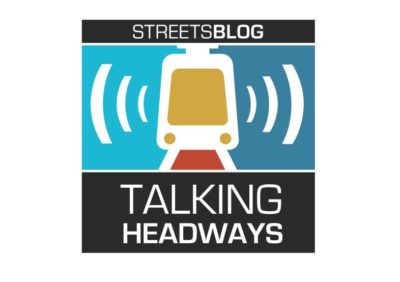This week, writer Dan Moore talks about his piece in The Ringer, “What Do Cities Lose When They Lose Pro Sports?,” about the benefits and harms of stadium deals.
For those of you who get your news through your eyes and not your ears, there’s an edited transcript below the audio player. For an unedited transcript, click here.
Jeff Wood: What do the teams hold over cities? [Over the] electorate and voters? The sports teams are so ingrained in city culture that it’s hard for a city to say no when these teams say that they want to leave. Think about the Raiders and how entrenched they were in Oakland, but also in, in Los Angeles. There’s a lot of folks in LA that still are Raiders fans from the time that they were there — and they’ll never give that up. How much does that influence how much power these teams have over cities, that culture that’s created, that loyalty, the ability to even get out voters to vote for some of these stadium deals?
Dan Moore : I think that plays a big role. There are largely two things that come to mind. The first is team owners know how important their teams can be to the populace of a place. That’s real — sports teams do confer a lot of intangible value to a place: They inspire pride; they create community; they create bonds both within the community and also within families. One thing in my piece in "The Ringer" that I heard, time and time again, in the conversations I have with fans was how important it was for them to be able to take their kids to an As game one day and how important it had been when they were kids to be able to go to an As game with their parents. So, all that’s real. Team owners know that. Team owners know the power that they have over cities to that end and they wield it. And so that’s one.
Another is there’s a perception, I think that is very strong, particularly in a place like Oakland, maybe to a lesser extent, but you think about mid-tier cities where having a pro team seems to suggest something about them, that they are a major-league city, that they are worthy of proteins and deserve to be in that discussion. So that creates another kind of power the team owners use in these negotiations, too. On the other side, it very much powers the desire of other cities, like Las Vegas. They say: We want your football team. We want that status. We’ll give you $750 million in public funding to acquire it. Those are a few of the levers that team owners use.
Wood: It’s interesting that they’re so aspirational in that way. I grew up in Houston; the Oilers were a big thing and then they left to go to Tennessee. Before that, you ... didn’t hear much about Tennessee, but then you hear about Tennessee. So you think of these places that get a sports team, and they come into your consciousness. It’s almost like college football, where the universities are basically fronting these teams to be big advertisements for the school and using them as a way to create that aspiration for people to want to go there. It’s interesting to think about it from that perspective, from a city perspective, from [that of] a Nashville or other mid tier cities you’re talking about. I’m wondering how many of those investments that they made in these stadiums actually turned out from that perspective of making them their profiles bigger on a national or even international stage.
Moore: I think there certainly are examples of it working out that way. I think of Oklahoma City, for example, which if you set aside sort of the shady way that they acquired the formerly Seattle Supersonics (Sam Anderson writes about this and "Boom Town" is excellent book on Oklahoma City). The Thunder, when they began to exist in Oklahoma City, played a key role in a renaissance or a revival campaign of downtown Oklahoma City — in that arena that was built. ... I haven’t been to Oklahoma City, but it is sort of the centerpiece of that revival initiative.
You look at a place like San Francisco or San Diego, as well, where the new stadium that San Francisco built the giants that arguably succeeded in improving and beautifying and refining that part of the city. So that potential is very real, too. You do see that happening. That’s what Oakland wants more than anything else. The political leaders who are fighting to keep the As and are fighting to greenlight the stadium, they want to maintain that sense of major-league status, everything that we’ve talked about so far. But they also very much want to revitalize that pocket of downtown and stadiums can be a vehicle of doing that. By virtue of that fact, pro teams can be a vehicle of doing that — "can" being a key word. It doesn’t always quite work out like that, often. It doesn’t, but I think that’s another piece of it.






